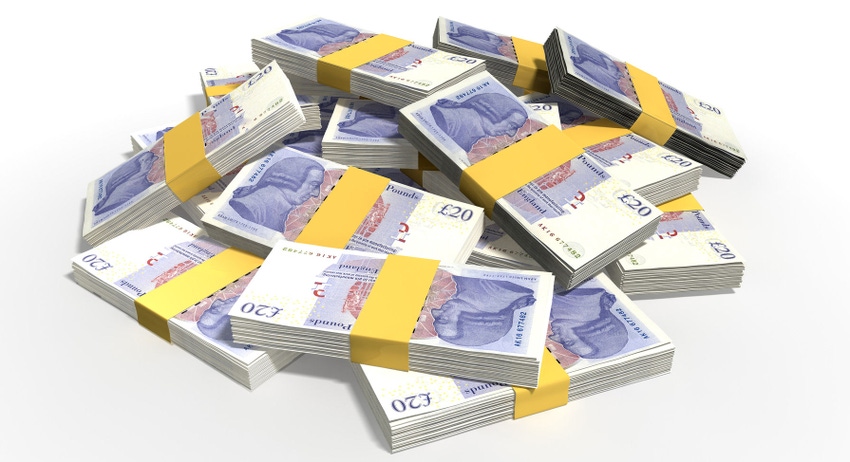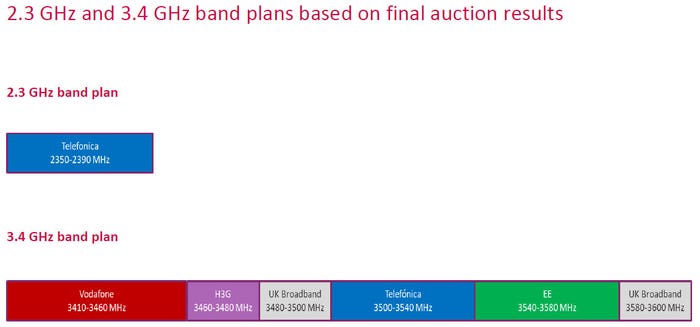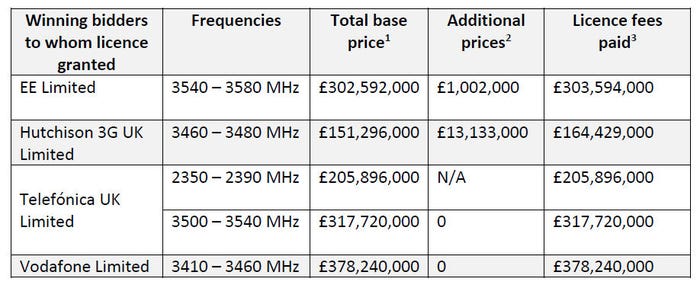Ofcom has announced the final outcome of the UK 5G spectrum auction, following the assignment stage, and Three had to pay a premium to get exactly what it wanted.
April 13, 2018

Ofcom has announced the final outcome of the UK 5G spectrum auction, following the assignment stage, and Three had to pay a premium to get exactly what it wanted.
This stage wasn’t a free-for-all, instead there were two distinct blocks of spectrum either side of Three’s UK Broadband legacy and it was somehow determined that only two operators could bid on each block. It was probably down to the size of each block: the lower one being 70 MHz wide and the higher one 80 MHz meaning Three (which won 20 MHz) and Vodafone (which won 50 MHz) had to bid against each other for their place in the lower block.
As you can see from the Ofcom diagram below, Three had to grab the part of that lower block that was adjacent to its lower 20 MHz UK Broadband spectrum to create a contiguous chunk that is much more useful for things like carrier aggregation. Being allocated a 3410-3430 chunk would have been significantly less useful.

Vodafone had no such concerns, having no other spectrum anywhere near this band, so it presumably wasn’t bothered about what it was allocated. However, as you can see in the table summarising the results of the allocation auction below, Three ended up spending £13 million for its preferred chunk – far more than anyone else.

The mechanics of the process seem to be that only the winner of each mini auction ended up paying, but EE only had to drop a mil to outbid O2 for its spot in the high section. We understand this was to do with potential interference with the 1800 MHz band, of which EE is far more reliant upon than any of its competitors.
This implies the bidding was a lot more intense between Three and Vodafone, despite the latter not really caring about the outcome. The only explanation we can think of is that Vodafone drove up the price for a laugh, knowing Three couldn’t afford to lose it, which is quite amusing.
Pouring further salt in Three’s wounds will be the recollection that BT/EE had called for the matter of allocation to be resolved in advance back when it and Three were still contesting the auction process last year. BT/EE was derided by Ofcom and Vodafone for potentially delaying the auction, but had it been accommodated Three could be £13 mil better off today. Gutted.
About the Author(s)
You May Also Like








.png?width=300&auto=webp&quality=80&disable=upscale)


_1.jpg?width=300&auto=webp&quality=80&disable=upscale)


.png?width=800&auto=webp&quality=80&disable=upscale)